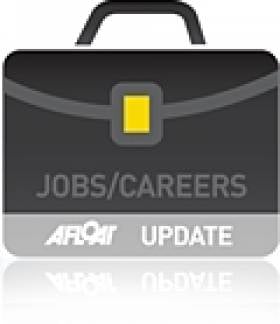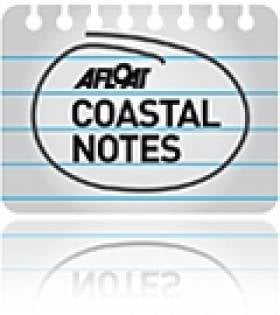Displaying items by tag: oil and gas
Kildare Firm Creates Jobs With Robot Submarine Deal
#Jobs - RTÉ News reports that Kildare-based firm Cathx Ocean will create 50 jobs over the next two years after winning a contract to supply imaging systems for robot submarines.
Minister for Jobs Richard Bruton welcomed the deal with US company Bluefin Robotics as the latest in a series of international contracts for the Irish marine technology firm, whose products are used for underwater surveys particularly in the oil and gas industry.
The minister was speaking at a trade mission that coincided with the Offshore Technology Conference in Houston, Texas, which saw a number of Irish companies secure new deals with American firms in the offshore energy sector.
RTÉ News has more on the story HERE.
Minister Launches Consultation on Harnessing Ireland's Ocean Wealth
#NEWS UPDATE - Minister for the Marine Simon Coveney has launched a public consultation process on harnessing the potential of Ireland's vast marine resources.
Our Ocean Wealth is calling for input into how Ireland can best capitalise on the trillion-euro global market for marine products and services, from seafood and tourism to shipping, oil and gas, renewable ocean energy and marine science.
Launching the consultation, Minister Coveney said: "We need to change the way we in Ireland think about the sea and look for new opportunities to harness the potential of our 220-million-acre marine resource.
"This government is determined to generate the momentum to drive forward a new era of sustainable economic development across the maritime sectors - we must avail of these opportunities to assist in our recovery. We want your help to shape our plan, to shape our future and to assist in our drive towards our nation's economic recovery."
The consultation process is a step towards developing an Integrated Marine Plan for Ireland intended to grow the percentage of GDP generated by the country's marine resource, which covers an area 10 times the size of Ireland's land mass.
The minister added: "We need an Integrated Marine Plan to harness our ocean wealth, get the environment right for investment and use the potential of our marine economy to create jobs in a sustainable manner."
The consultation phase will be open until 31 March with an aim to publish the Integrated Marine Plan during the summer. For more details visit www.ouroceanwealth.ie.
Dolphin Group Comments on Dalkey Island Prospect
#DALKEY ISLAND PROSPECT - The Irish Whale and Dolphin Group (IWDG) has joined the chorus of opposition to the proposed oil and gas exploration off Dalkey Island in Co Dublin.
As previously reported on Afloat.ie, Providence Resources has applied for a foreshore licence to search for oil or gas about 6km out to sea on the Kish Bank Basin.
But the prospect has provoked a split in the local community over the potential risks and benefits, with many calling for a public enquiry into the licence before it is granted.
This evening an urgent meeting in Dun Laoghaire will address the public's concerns, which have been echoed by the IWDG.
"The Kish Bank and adjacent waters are important for cetaceans," said the group in a statement. "In addition, sightings of bottlenose dolphins have increased dramatically in the area following the presence of a group of three individuals since August 2010."
The IWDG is concerned about the potential effects on dolphins and porpoises that "could due to noise generated from the drilling process", noting that "there is little published data on the intensity and effects of sound generated by drilling".
Protest group Protect Our Coast has launched a online petition against the Dalkey Island Prospect citing concerns over the proximity of the drilling area to the mainland as well as the Special Protection Area of Dalkey Island, which is a haven for marine wildlife.
- Irish Whale and Dolphin Group
- IWDG
- Dalkey Island Prospect
- Coastal Notes
- Dalkey Island
- Dublin
- oil and gas
- exploration
- drilling
- Providence Resources
- foreshore licence
- Kish Bank Basin
- community
- Dun Laoghaire
- bottlenose dolphins
- Porpoises
- Cetaceans
- noise
- sound
- Protect Our Coast
- protest
- petition
- Special Protection Area
- marine wildlife































































